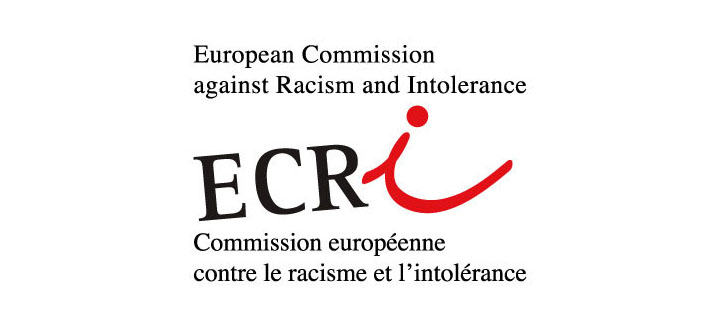ECRI: Siyasilerin nefret söylemine ceza yok


Bağımsız uzmanlardan oluşan ECRI, Türkiye’nin de üyeleri arasında yer aldığı Avrupa Konseyi’ne bağlı çalışıyor ve Avrupa Konseyi üyesi devletlerdeki ırkçılık, yabancı düşmanlığı ve hoşgörüsüzlük alanlarında periyodik denetim raporları hazırlayıp tavsiyelerde bulunuyor.
ECRI’nın Kasım 2015’te yapılan Türkiye ziyaretinin ardından hazırladığı raporda, kamu denetçiliği kurumunun kurulması, azınlıkların hakları ve sığınmacılar gibi konularda son yıllarda ilerleme kaydedilmiş olsa da, özellikle Suriyeli sığınmacılar, Kürtler, Romanlar ve LGBT bireyler gibi kırılgan gruplarla ilgili endişelerini sıraladı.
Nefret söyleminin özellikle resmi görevliler tarafından dillendirilmesinin büyük bir endişe kaynağı olduğunu belirten ECRI, bu duruma örnek olarak Cumhurbaşkanı Recep Tayyip Erdoğan, Ankara Büyükşehir Belediye Başkanı Melih Gökçek ve şarkıcı Yıldız Tilbe’nin geçtiğimiz yıllarda TV ya da sosyal medyada kullandıkları bazı ifadeleri gösterdi. Raporda Erdoğan’ın 2015’te televizyonda sarf ettiği ‘Afedersin Ermeni’ sözleri de nefret söylemi olarak yer aldı.
Nefret söyleminin 2015 yılındaki seçim kampanyalarında “zirve yaptığı” ve bu tür söylemlerin “toplumda mevcut bölünmeleri daha da arttırdığı” not edildi.
ECRI, nefret söylemiyle etkin mücadele için öncelikli olarak “devlet temsilcileri ve her düzeydeki siyasi sorumluların bu tür söylemlerden vazgeçmeleri gerektiğini” belirtti, Avrupa Konseyi’nin bu yönde geçmişte alınmış kararlarına atıfta bulundu.
Raporda nefret söyleminin çoğu zaman cezalandırılmadığını, hatta nefret söylemiyle ilgili yasaların kırılgan grupları sessizleştirmek için kullanıldığı belirtildi. Ayrıca yasal düzenlemede nefret suçu tanımının sığ olduğu ve ceza kanununun ırkçı ve homofobik/transfobik söylemlerde ceza arttırımının olmaması eleştirildi.
Irkçı şiddete dair veri yok
Türkiye’nin ırkçı ve LGBTİ’lere yönelik şiddete dair veri toplamadığı da belirtilen raporda, HDP’ye yönelik saldırılar hatırlatıldı ve PKK’ye yönelik güvenlik operasyonlarının yeni bir şiddet dalgası oluşturduğu vurgulandı. Raporda polisin 2015 LGBTİ Onur Yürüyüşü’nü dağıttığı da hatırlatılıyor.
Sığınmacılara nefret söylemi
ECRI, “nefret söyleminin Suriyeli sığınmacıları da hedef aldığını” ve “en az 400 bin sığınmacı çocuğun okula gidemediğini” de not düştü. Raporda ayrıca Romanların ve Kürtlerin kamu hizmetine ulaşımında sıkıntı yaşadığı vurgulandı.
Sadece 2014 yılında Yahudilere, Hristiyanlara, Ermenilere, Kürtlere, LGBTİ’lere, Rumlara, Alevilere, Araplara ve Suriyeli sığınmacılara yönelik kayda geçmiş yaklaşık 500 nefret söylemi vakası olduğunu belirten ECRI, raporun ‘nefret suçu’ bölümünde Sevag Balıkçı, Maritsa Küçük ve Hrant Dink cinayetlerindeki soruşturma sürecini aktardı; kiliselere yönelik saldırı ve ölüm tehditleri hatırlatıldı.
Rapora göre, Türkiye’de nefret söylemlerinin büyük çoğunluğu polis ya da yargıya ihbar edilmiyor, ihbar edilenlerin çoğunluğu cezalandırılmıyor.
Raporda, son yıllarda taziye mektubu, Hanukka kutlaması, Alevilere verilen yemek gibi uygulamalarla resmi yetkililerinin azınlıklara karşı daha uzlaştırmacı bir dil kullandığı da belirtildi.
ECRI Başkanı Christian Ahlund, yaptığı yazılı açıklamada, “Rapor 15 Temmuz darbe girişimi öncesinde hazırlandı ama Türk makamlarına bugün de geçerliliğini tamamen koruyan önemli tavsiyelerde bulunuyor” ifadelerini kullandı.
Raporda, Türkiye İnsan Hakları Kurumu ve Kamu Başdenetçisi’nden nefret söylemlerini kınamaları istendi.
Yöneticileri nefret söyleminde bulunan siyasi partilere kamu finansmanının kesilmesi veya bu partilerin kapatılması olasılığına değinen ECRI, ırkçılık ve ayrımcılığı yasaklayan Kamu Görevlileri Etik Davranış İlkeleri’nin “devleti temsil edenlere de uygulanmasını” önerdi.
Bağımsız soruşturma organı
Raporda yer alan tavsiyeler arasında Avrupa İnsan Hakları Sözleşmesi’ne (AİHS) ek 12 numaralı protokolün onaylanması, ayrımcılıkla mücadeleyi kapsayan yasal mevzuatın ve İnsan Hakları Kurumu bağımsızlığının ECRI normlarıyla uyumlu hale getirilmesi ve güvenlik güçlerinin neden olduğu iddia edilen kötü muamele şikayetlerini soruşturacak bağımsız bir organ oluşturulması da yer alıyor.


